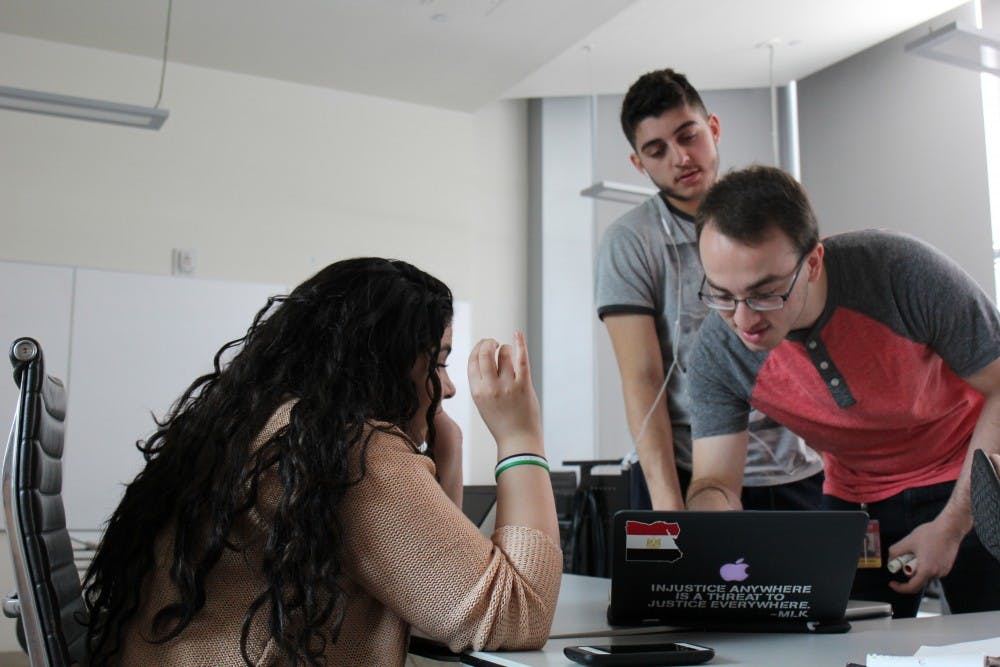As the refugee crisis becomes a more prevalent issue, one ASU student organization gives students an opportunity to ask questions directly to local refugees.
Students Organize for Syria, a nonprofit student-led movement that has a chapter at ASU, provides humanitarian relief, advocacy and education to Syrian refugees in the community. The ASU chapter's upcoming event on Feb. 24, invites students to an interactive meet-and-greet where they can ask questions and hear first-hand accounts from actual refugees.
Students Organize for Syria Vice President Hamed Alattar, a senior double majoring in biological sciences and psychology, said he has a personal connection to the group.
“My parents are both Syrian, and my sister is the founder and previous president of the organization, and I have family members that have been affected by it,” he said. “It’s not something I got involved with because of SOS, but something I was cognizant of, and SOS allowed me to help in ways that I couldn’t normally do.”
Alattar said the meet-and-greet is a great way to connect ASU students and refugees in the community.
“It really is removing all the social barriers that often times people have when it comes to people of different cultures, backgrounds or experiences in life,” he said.
The meet-and-greet will feature families and their stories, and Alattar said it will allow people to see what’s happening behind the scenes.
“You have parents that are trying to support their children, children that are trying to educate themselves, or elder siblings caring for younger siblings,” he said.
Alattar said people will also be able to relate to the refugees and their struggles.
“They’ll get to humanize the people they think are so separate from them,” he said. “The news right now is always terrible, and so it’s a positive experience with refugees and with those who seem so distant to you, but are so relatable to you.”
Luisanna Granillo, an educational studies sophomore, said working with the organization to tutor refugees has helped her appreciate life more.
“What I have now so many people around the world want,” she said.
Granillo said tutoring the kids introduced her to a culture she wanted to learn more about.
“After I was done with the tutoring session, I was just really inspired and I really want to continue learning more about them,” she said. “It’s an eye-opener especially when they share things about their own country, show you pictures of what it was like over there and tell you about their traditions.”
Granillo said the stories she has heard helped her understand the differences and challenges the refugees face.
“Last week we went hiking with them, and there were dogs, and the little kids were really scared,” she said. “I learned the reason why they’re scared of dogs is because in their country dogs are not seen as pets, but here it’s so common for everyone to love dogs.”
SOS secretary Dina Elsharkawy, a sophomore double majoring in finance and business law, said the interaction benefits both the ASU students and refugees in different ways.
“I think it will allow people to ask the questions that they want to ask and get a look into what these kids go through daily,” she said. “A lot of the kids do have those real life experiences and are very comfortable sharing those kinds of things.”
Elsharkawy said it also helps the refugees in the valley feel more welcomed and included in the community.
“We thought that it would help them practice their English skills as well as help them feel more comfortable in the community, she said. “They are refugees, yes, but they are also humans living in America.”
Elsharkawy said being a part of the organization gives participants a chance to make a difference even with small gestures.
“I feel like a lot of us get caught up in making an impact and we don’t know how,” she said. “We really focus on that big obstacle, when we can do things like take an hour out of our day and go sit down with a kid and help him with his math homework.”
Kimberly Enriquez, a junior double major in political science and justice studies, said being a part of this organization has had a lasting effect on her.
“Looking at how a Syrian refugee has to adapt to a foreign country, and is sometimes not always welcome, is quite sad," she said. "Knowing that I am capable of helping them has affected me greatly."
Enriquez said being around the refugees has taught her valuable lessons.
“It has taught me the value of being a good neighbor and of treating people with respect as well as helping when they are in need of it," she said.
Reach the reporter at kasando1@asu.edu or follow @karismasandoval onTwitter.
Like The State Press on Facebook and follow @statepress on Twitter.




